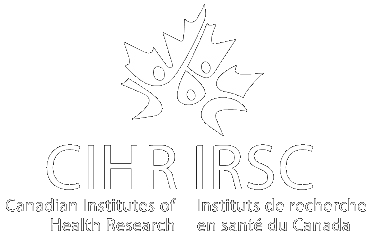
ACT-AEC Canada held an open competition to fund the development of new or existing trial networks in areas of need. Trial networks bring together relevant stakeholders (e.g., researchers, patient partners) and are focused on disease states, patient populations, or interventions. A total of $900,000 is available to fund 6 new networks (i.e., $150,000 for each successful network application) in the following streams:
We are thrilled to unveil the selected awardees. Congratulations to each recipient! Your dedication and expertise are pivotal in our collective efforts to accelerate trials throughout Canada:
1) Stream One – Mental Health
As per the ACT-AEC grant, we sought input from federal, provincial, and territorial Ministries of Health to identify areas they believed would benefit from the creation of a Canadian trial network in an area they find challenging to obtain research data. The Ministries identified mental health as an area of need, which was also identified by the ACT-AEC International Advisory Committee as an area that should be expanded. We therefore requested applications for the creation of a network focused on mental health randomized controlled trials (RCTs). Applicants may choose to have a broad focus on mental health or a more focused area within mental health. Our goal is to fund one application to create a new network focused on mental health RCTs:
- CYMH Trials Network – Canadian Network for Child and Youth Mental Health Trials
PI: Dr. Amanda Newton
2) Stream Two – Other Areas of Need.
We funded five new trial networks in demonstrated areas of need:
CanHMVr – The Canadian Home Mechanical Ventilation Research Network
PI: Dr. Reshma AminCANUCS – Canadian Collaborative on Urgent Care Surgery
PI: Dr. Kelly VogtCCARE-LTC – Collaborative for Caring for Long-Term Care
PI: Dr. Paul HebertCMCCTN – Canadian Medical Cannabis Clinical Trials Network
PI: Dr. Jason Busse, Dr. Hance ClarkePIRN – Canadian Paediatric Inpatient Research Network
PI: Dr. Peter J Gill
Funding
Is this a single award of $150k and for what period? Is the budget expected to focus only on network development, or can it include costs towards research?
Network Criteria
What do you mean by “new” network?
The network should be new to ACT. It is okay if there is another network in Canada that does similar work as long as it does not overlap with current ACT networks (https://act-aec.ca/research-networks/) and still meets the eligibility criteria, in particular:
- The proposed network may already exist but has not previously received funding for the creation or support of the network from CIHR or other funding bodies for ≥$200,000 CAD to establish their network. This does not include grant money to run a clinical trial. This exclusion criterion refers to money explicitly to establish the network (e.g., funding to set up the governance or patient engagement model, administrative coordination of the network)
Is this competition exclusive for networks undertaking only RCTs or can we include RCTs as well as other study designs?
Network Membership
Are international investigators allowed – i.e., can we have American PIs on the team?
Where it says 10 investigators – could it be interpreted as investigators: juniors and senior researchers, as well as patient partners or scientists, such as methodologists and statisticians?
- Describe the members, their location, and their experience in clinical trials (at least 10 investigators, in at least 5 provinces/territories, at 5 or more sites). If the principal applicant does not have experience in clinical trials, please propose a mentorship plan [20% of the score].
Last updated 9-Jan-2023
